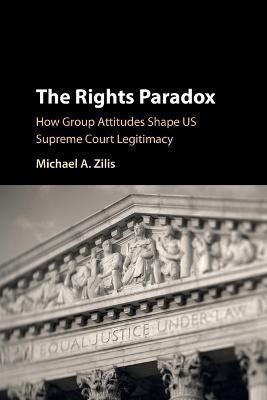The Rights Paradox: How Group Attitudes Shape Us Supreme Court Legitimacy

The Rights Paradox: How Group Attitudes Shape Us Supreme Court Legitimacy
The US Supreme Court is the chief institution responsible for guarding minority rights and equality under the law, yet, in order to function authoritatively, the Court depends on a majority of Americans to accept its legitimacy and on policymakers to enforce its rulings. The Rights Paradox confronts this tension, offering a careful conceptualization and theory of judicial legitimacy that emphasizes its connection to social groups. Zilis demonstrates that attitudes toward minorities and other groups are pivotal for shaping popular support for the Court, with the Court losing support when it rules in favor of unpopular groups. Moreover, justices are aware of these dynamics and strategically moderate their decisions when concerned about the Court's legitimacy. Drawing on survey and experimental evidence, as well as analysis of Court decision-making across many recent high-profile cases, Zilis examines the implications for 'equal justice under the law' in an era of heightened polarization and conflict.
PRP: 237.06 Lei
Acesta este Pretul Recomandat de Producator. Pretul de vanzare al produsului este afisat mai jos.
213.35Lei
213.35Lei
237.06 LeiLivrare in 2-4 saptamani
Descrierea produsului
The US Supreme Court is the chief institution responsible for guarding minority rights and equality under the law, yet, in order to function authoritatively, the Court depends on a majority of Americans to accept its legitimacy and on policymakers to enforce its rulings. The Rights Paradox confronts this tension, offering a careful conceptualization and theory of judicial legitimacy that emphasizes its connection to social groups. Zilis demonstrates that attitudes toward minorities and other groups are pivotal for shaping popular support for the Court, with the Court losing support when it rules in favor of unpopular groups. Moreover, justices are aware of these dynamics and strategically moderate their decisions when concerned about the Court's legitimacy. Drawing on survey and experimental evidence, as well as analysis of Court decision-making across many recent high-profile cases, Zilis examines the implications for 'equal justice under the law' in an era of heightened polarization and conflict.
Detaliile produsului








